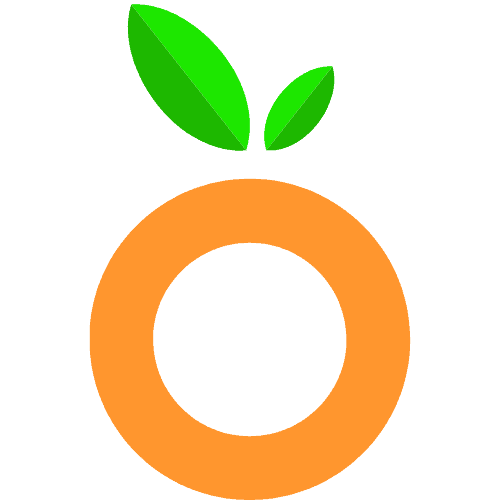How Long Does It Take To Learn SQL? (Direct Answer!)
We’re reader-supported; we may earn a commission from links in this article.
SQL (Structured Query Language) is an easy-to-learn programming language that is used to manage data in a database.
But somehow, everyone always asks me this question over and over again: “how long does it take to learn SQL?”
Frustrated with being constantly questioned, I decided to share what I know about how long it takes to learn SQL, from my experience as a data analyst!
Here’s the direct answer:
It takes 2 – 3 weeks to learn SQL up to the basics. However, complicated SQL queries can take a much longer time to learn how to write. To apply SQL frequently at work, it can take up to a year to really master the language. People who have a background in coding will definitely take lesser time to learn SQL.
Now that you know exactly how long it will take to learn SQL, you may want to know more about what it is and why it’s easy to learn.
Read on for more information!
What is SQL?
SQL is a standard programming language that was created to manage data in relational database management systems (RDMS). It can be used to insert, update, delete, and retrieve data from a database. SQL is easy to learn because it uses simple English keywords and has a well-defined syntax. In addition, SQL can be learned relatively quickly compared to other programming languages.
Why Should You Learn SQL?
SQL is a powerful programming language that is essential for managing data in today’s world. It is used by businesses of all sizes, from small startups to large enterprises. SQL is also a versatile language that can be used for a variety of tasks, such as creating reports, performing analyses, and more.
More particularly, if you’re a data analyst, data scientist, a web developer, chances are you’re gonna encounter MySQL databases along the way. You may need to learn SQL to make queries to get datasets to train/test or analyze data for work!
Is SQL Easy To Learn?
Yes, SQL is easy to learn. The syntax is simple and easy to understand, and there are many online resources that can help you get started with learning SQL. Learners who have learned programming before will find it even easier to learn than complete beginners to learn it.
Why Is SQL Easy To Learn?
SQL is easy to learn because it uses simple English keywords and has a well-defined syntax. In addition, SQL can be learned relatively quickly compared to other programming languages.
Why is SQL easy to learn?
There are several reasons why SQL is easy to learn:
1) SQL uses simple English keywords and has a well-defined syntax
SQL is easy to learn because it uses simple English keywords and has a well-defined syntax. This makes the code more human-readable, making it easier for us to look at a bunch of code and understand what it’s trying to query.
A well-defined syntax also means that a particular function is meant to always be used in the same way, and is not very susceptible to differences between coding intent and final output. It’s more robust in its usage and calculations.
2) SQL can be learned relatively quickly compared to other programming languages
SQL can be learned relatively quickly. That’s because it is very similar to other programming languages. If you’ve learned any other programming languages before, you may draw some similarities in syntax.
How Long Does It Take To Learn SQL?
It takes anywhere from two weeks to several months to learn SQL depending on how frequently you use it. However, complicated SQL queries can take a much longer time to learn how to write. To apply SQL frequently at work, it can take up to a year to really master the language. People who have a background in coding will definitely take lesser time to learn SQL.
Which Careers Require Use of SQL?
There are many careers that require the use of SQL.
Some examples include:
- Data analysts
- Data scientists
- Business intelligence analysts
- Database administrators
- Web developers
SQL is a versatile language that is used in many different industries. If you’re interested in pursuing any of the above careers, learning SQL is a great place to start!
How To Learn SQL?
There are many ways you can learn SQL. Here are a few of them
list some ways to learn SQL
1) Watch Online Tutorials
There are many online tutorials that can help you learn SQL. These tutorials are often step-by-step and include exercises so you can practice what you’ve learned.
2) Read Books on SQL
If you prefer to learn from books, there are many books on SQL that can help you get started. These books often include exercises and examples to help you understand the concepts.
3) Use An Online Course to Learn SQL
Online courses are a great way to learn SQL. They often include video tutorials, quizzes, and exercises so you can practice what you’ve learned.
4) Attend a Class or Workshop on SQL
If you prefer to learn in a classroom setting, there are classes and workshops available on SQL. These classes often include hands-on exercises so you can practice what you’ve learned.
It’s not always that you have to learn SQL from an offline setting – you can also look at options available online!
Some examples include online webinars, paid courses, or free YouTube tutorials where they can speed-track you to learning SQL really quickly!
No matter how you choose to learn SQL, the important thing is that you get started!
Conclusion
SQL is a great language to learn for anyone looking to get into the world of programming. It’s easy to learn, relatively quick to master, and is used in many different industries.
With this guide, you should be able to answer the question: how long does it take to learn SQL? In no time at all, you’ll be on your way to becoming a SQL pro!
I hope this article answers some burning questions that you may have about learning SQL.
Here’s my recommendation as a data analyst: If you’re looking to learn SQL fast, I recommend taking a course in SQL to speed up your learning process from months to just weeks!
With that, thanks for reading this article, and have fun learning SQL!

Justin Chia
Justin is the author of Justjooz and is a data analyst and AI expert. He is also a Nanyang Technological University (NTU) alumni, majoring in Biological Sciences.
He regularly posts AI and analytics content on LinkedIn, and writes a weekly newsletter, The Juicer, on AI, analytics, tech, and personal development.
To unwind, Justin enjoys gaming and reading.


